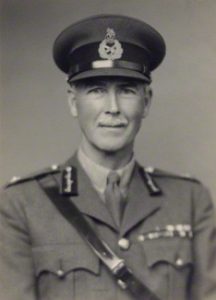 Click here to view the original article.
Click here to view the original article.
LAKE SUCCESS, May 7 (U.P.)-Great Britain suggested in the United Nations tonight that the United States, France and Belgium serve as the nucleus of a “neutral” authority to succeed the British mandate in Palestine a week from tomorrow.
Arthur Creech Jones, British colonial secretary, told a U. N. subcommittee that the Consuls of the three nations, now serving as a U. N. truce commission on the spot, could be supplemented by one or two “outstanding persons” recognized as neutrals in the Palestine dispute and also by the chairman of the U. N. Palestine commission, Karel Lisicky of Czechoslovakia.
FIRST SUGGESTION
This was the first time Britain has made a concrete suggestion on the composition of the government it feels should fall heir to the British mandate and try to exercise some central administration while Jews and Arabs fight out their war.
Inclusion of Lisicky in the suggested “neutral” government came as surprise since he comes from a country in the Russian orbit and the western powers have been carefully avoiding any step that might open the door to Russian influence in the Holy Land’s future.
The British suggestion came in the subcommittee of the General Assembly political committee as U. N. officials carried on intense negotiations with Jewish and Arab spokesmen in an effort to reach agreement on an emergency mayor for Jerusalem.
NO CANDIDATES
Efforts to pick a mayor for the Holy City focussed on the U. N. when the British High Commissioner for Palestine, Sir Alan Cunningham, notified the world organization that he could find no candidates in the Holy Land for the post.
It was learned that the negotiators were near agreement on an American candidate for the Jerusalem post and that his name might be forwarded to Palestine tonight for approval by Arab and Jewish higher-ups.
Creech Jones told the subcommittee that the small “neutral” authority should be sent to the Holy Land whether the Jews and Arabs consented or not.
Cunningham’s message that no suitable candidate for Jerusalem mayor could be found in Palestine came as a surprise.
‘NO CO-OPERATION’
An American official who declined to be named said the development was “another example of Britain’s shocking lack of co-operation.”
The American statement was based on an incorrect U. N. announcement that Cunningham’s message had been forwarded directly by British Foreign Secretary Bevin. This conveyed the impression, later corrected, that Britain was giving up completely on the task of finding a Jerusalem mayor.
The high commissioner, Sir Alan Cunningham, asked U. N. Secretary General Lie to try getting Arabs and Jews here to agree on a man for the post. It was understood that such negotiations began immediately.
For a few confused hours, Cunningham’s message was taken to mean Britain had completely given upon the touchy assignment and thereby nullified the one small measure of agreement the U. N. has reached in dealing with the Holy Land tangle.
But in mid-afternoon, a British press officer called a hurried news conference to announce the British government still was trying to find a suitable candidate outside Palestine for the Jerusalem post.
The American official who had charged Britain with “shocking lack of co-operation” said, at this point, that he was glad to hear that the British government in London still was looking for a nominee.